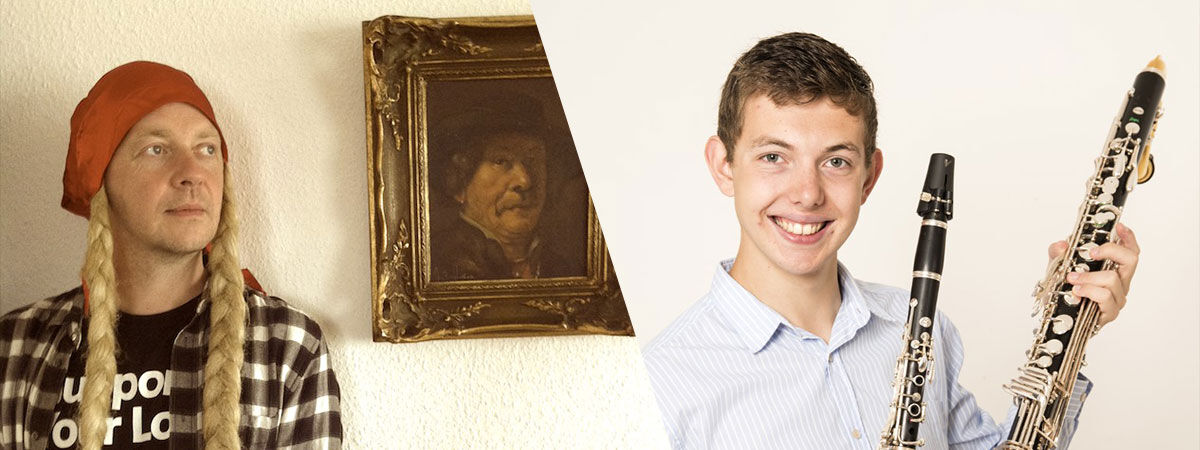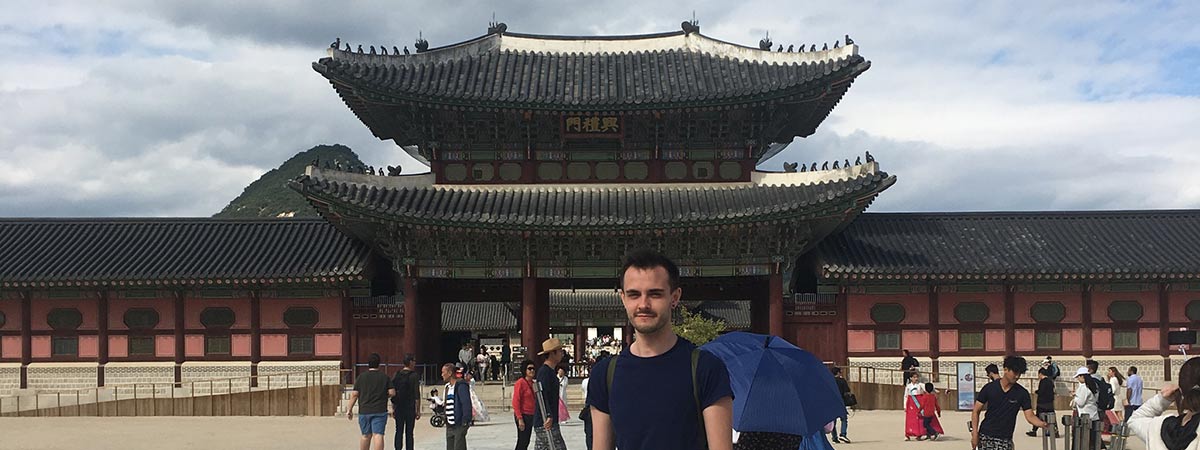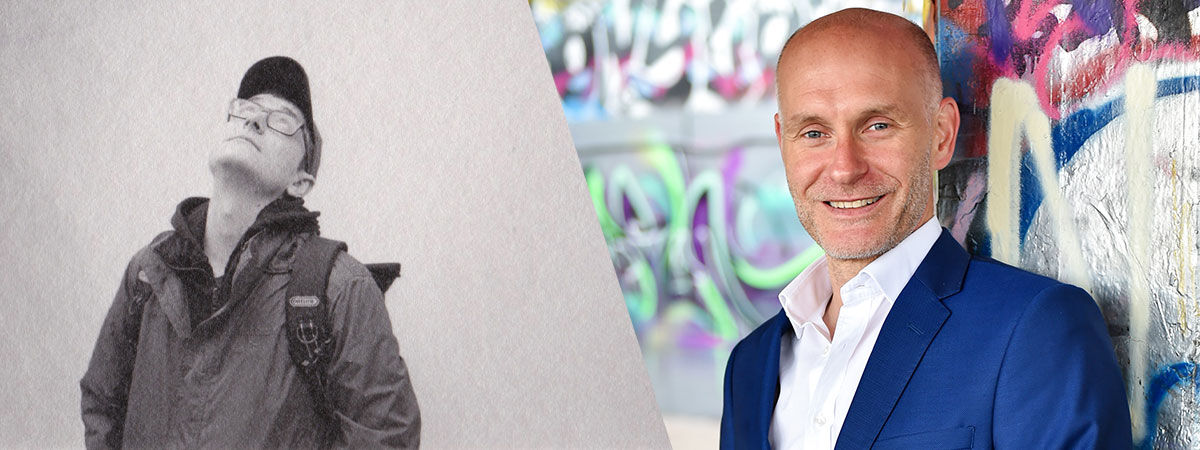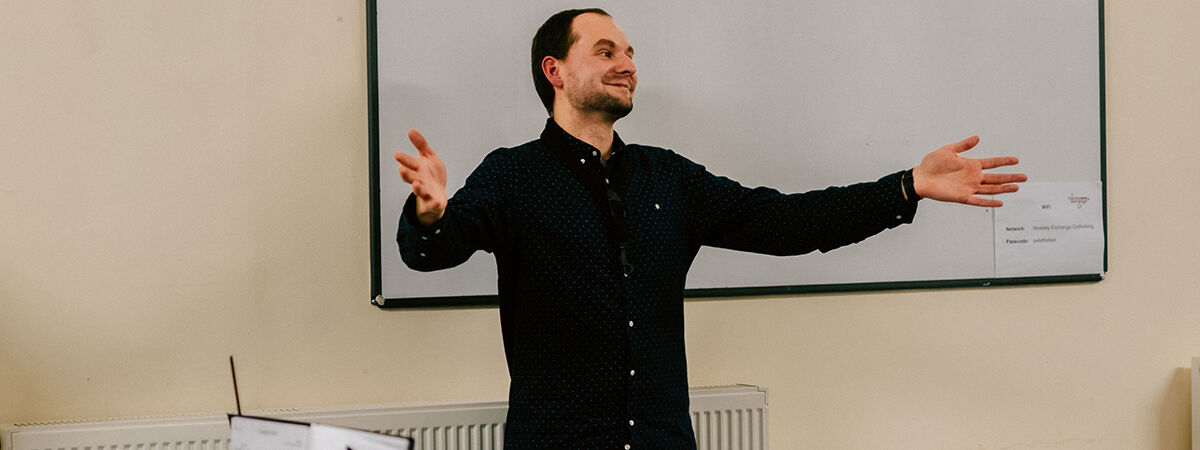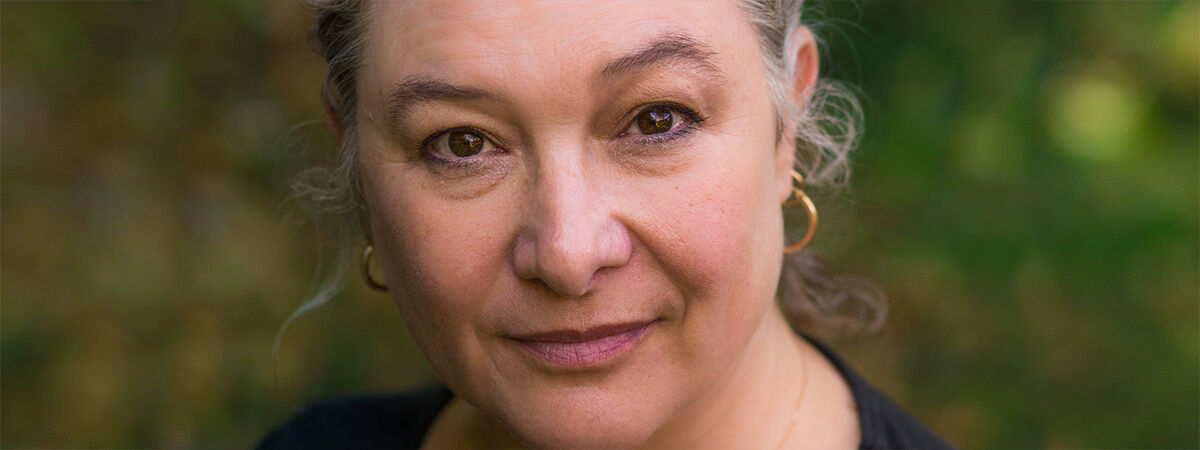Welcome to the final instalment of Series 2 of Passing the Baton.
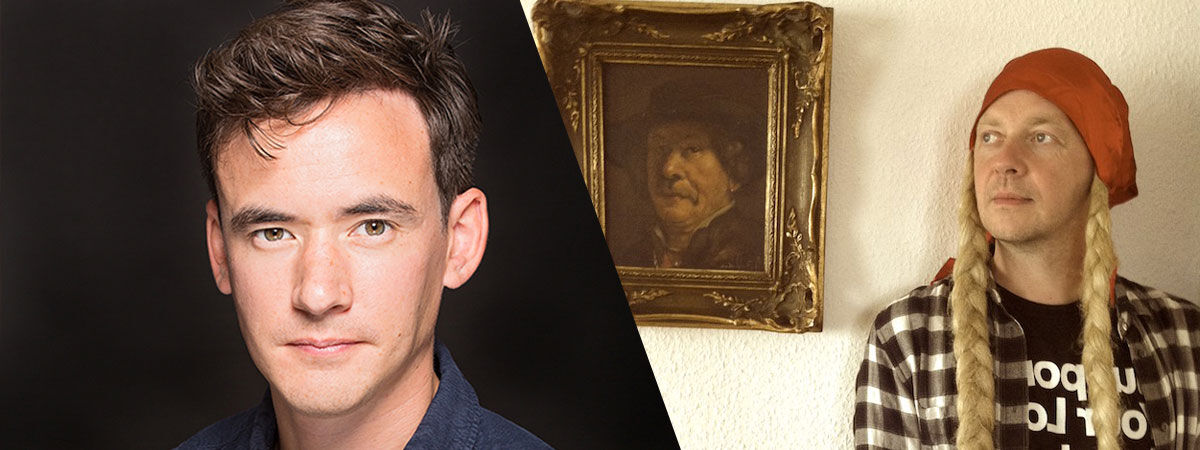
This week, we come full circle as Professor of Vocal and Operatic Studies Paul Wingfield passes the baton back to Deputy Head of Composition Michael Wolters.
Paul Wingfield (PW)
Moments of crisis often inspire great work amongst artists. Has the pandemic been a source of momentum for you as a composer?
Michael Wolters (MW)
Everybody was up in arms when Stockhausen described 9/11 as a great piece of art, but experiencing the pandemic I have come to understand more what he might have meant. It’s not about the glorification or celebration of an act such as 9/11, not at all, but it’s about experiencing something that seems incredibly “artificial”, unreal, and totally removed from life as we know it. I have experienced the lockdown as something like this.
At the beginning, my partner and I were knocked out for two weeks with the virus and then we caught up quickly with the strangeness that was lockdown. I had absolutely no urge to write music, to produce any kind of art because it felt like that was already taken care of by the situation itself. I couldn’t make anything that was more extraordinary than the extraordinariness of lockdown itself. I kept trying to make something, but failed for quite a while. Then we got creative by making our own Eurovision experience.
Eurovision is a fixed event in my calendar every year: There’s a competition, a party, and specific food for the party. The cancellation of Eurovision was a real blow, so we created our own. All participating songs existed on YouTube. We compiled them and asked people to make short video ‘postcards’ to introduce every country’s entry. Recipes for traditional Dutch food, as the contest would have been held in the Netherlands, were shared beforehand.
So, on the original competition day in May we ‘played Eurovision’ with about 100 participants on Zoom, all eating Dutch food, watching videos together and, of course, voting – Iceland won. In a way, it was massive. A huge amount of work for a four-hour event, with more audience than we usually get at contemporary music concerts. It was amazing and it felt like the real competition and we wouldn’t have made and experienced it without lockdown. This was really the ‘great work’ that we did.
PW
For better or worse we are entering an age where digital communication takes on a new priority. Does this have implications for the composer?
MW
Absolutely. Traditionally, a handful of people had the power to dictate what new art music is being presented in the UK: artistic directors of festivals and venues in collaboration with a few publishers. It’s a model that was based on the personal tastes of a few men and very few women. It mostly happened in London and, as a composer, if networking wasn’t one of your strengths, you didn’t stand much of a chance of ever entering the circle of a selected few composers who were being promoted, commissioned, supported and performed. This way of selecting and presenting music is still around, but it feels like it’s coming to an end.
Instead we have the internet as a massive platform where people can present what they produce. The problem is a different one now: there is little quality control and it can be hard to find the good stuff. But instead of having to rely on a few men who decide what’s good and what isn’t, everybody can find their own paths. You find something exciting and tell someone else about it, a friend or colleague tells you about something exciting and so on.
It’s all sorts of people who are coming up with exciting things and now those established festivals and ensembles are playing catch-up. Now we need to think about how to fund this new system appropriately.
PW
What has kept you sane during lockdown?
MW
To be honest, I don’t think that I was that sane to start with, but there are definitely things that are getting me through lockdown: going to the Welsh coast whenever possible, finding out and repeatedly making roast pork the Cantonese way,RuPaul’s Drag Race, Dan Dan noodles, ice cream, Joe Wicks, RuPaul’s Drag Race All Stars, my friends, Eurovision, playing Werewolves every Sunday on Zoom, Canada’s Drag Race, walking my dog Hettie in the park for at least two hours every day, Sichuan cucumber salad – it’s the best; even better than German cucumber salad with sour cream, Mrs America, Trapped Season 2, There she goes, making ‘Aria Cuntata and the Black Holes, keeping our Group Critique class going with my amazing Experimental Performance students and staff, my partner, synthesisers, glossing miles of skirting board, and many more things.
PW
What is it about the talented young composers at RBC that you enjoy the most?
MW
Like every dedicated pedagogue, I really enjoy seeing students develop. I have been marking first-year portfolios over the last few years, and the huge steps that some people make from their application to the Conservatoire and the end of their first year is astonishing. I enjoy when students become active and do things not because you ask them, but because they have the desperate need to do it.
There were contributions at this year’s CODA festival that left me gobsmacked. It’s when someone surprises you with something brilliant. I don’t want to name people here, but in the last ten years I have seen things that some of our students have done that were braver, better, riskier and more radical than I have seen out there in the professional world.
Every year there are students who I love working with because it feels like you are helping them produce something amazing, not because you are telling them how to do it but because you are making them realise that and how it could be done. I love learning about other people’s ideas. It feels very special to be part of that.
PW
What advice would you offer students at this time?
MW
Right now is challenging us to find alternatives. Unfortunately, this is something that is no longer taught in school. Art subjects, taught right, can introduce people to the idea that finding solutions to problems can be creatively exciting, rather than annoying. When your business has to close because of lockdown, something none of us knew or saw coming, then what do you do? Do you complain that you can’t go back to how things were or do you think about what else you could do to keep going in a different way? Right now the search for alternatives is absolutely key to survival, but it’s something that not all of us can do. Like playing scales you need techniques to do it. And we need to learn those.
Imagine that you’re a composer and you have an idea for a string quartet, but you get approached by a tuba trio to write a new piece. If you stick to writing your string quartet, you execute your idea and then you hope that someone will eventually play it. But if you take that string quartet idea, break it open and re-think every element, so it becomes suitable for a tuba trio, you might end up with a better piece as you had to challenge your idea and test it, rather than simply execute it. I love obstacles because they force you to become creative. And that’s my advice: don’t accept obstacles as annoying problems, but find creative solutions. And that’s not just about composing or performing music, but about everything that you do.
